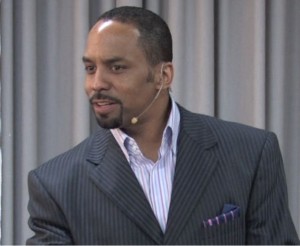Pastor Pierre Bennett is the founder of LifeSource Foundation, an organization that helps families in need. The organization, which fosters Pastor Pierre Bennett’s mission to create a worldwide ministry of care, that is committed to academic enrichment, prevention and intervention programs that reverse the impact of unhealthy lifestyles to those in need.
Pastor Pierre Bennett urges his congregation at God’s Luv International Ministries Church to be good, faithful and gentle, and to practice self-control, even when they don’t feel like it. This, Pastor Pierre Bennett insists, will help them walk in the true power of God’s love.
Goodness, Pastor Pierre Bennett says, means doing the right thing all the time. If you are good, you are promoting love, Pastor Pierre Bennett believes.
By faithfulness, Pastor Pierre Bennett means you must remain faithful to people even when they aren’t returning that same faithfulness. By being faithful in love to those whose paths you cross, you are acting as an angel of God, Dr. Bennett tells his congregation. While people may not return that faithfulness right away, in time it will click for them if they are meant to follow a path that leads to God.
In being gentle, Pastor Pierre Bennett means you should reply with kindness, even when someone is shouting and cursing in your presence. It also means practicing self-control. According to Pastor Pierre Bennett, when you hold back those feelings of anger–even when someone is trying to start a fight, you are serving as a good representative of Jesus Christ.
Walking in the power of God’s love has many benefits. Everything you have that is not in God’s likeness is removed from you when you begin following His example, Pastor Pierre Bennett tells members of God’s Luv International Ministries. Even things you don’t like about yourself will be removed from you—things you don’t even realize you don’t like, until you’re free of them.
Additionally, those things you do like about yourself will be multiplied when you follow God’s Word, Pastor Pierre Bennett explains. The gifts and talents that make you special are multiplied until you are almost superhuman, according to Pastor Pierre Bennett.
Pastor Pierre Bennett quotes from John 3:16: “For God so loved the world.” God loved the world and God loves you. Pastor Pierre Bennett suggests telling people you love them–even strangers–if only for the freeing feeling it gives you. That warm feeling of love can be with you all the time once you choose to follow God, Pastor Pierre Bennett says. By loving others, you’ll have an abundance of blessings and that is exactly what He wants for you.
